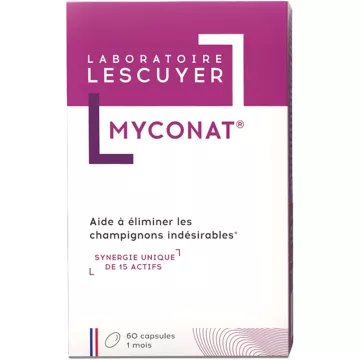Soin-et-nature respects your privacy Our site uses cookies to ensure that it functions properly and to optimise technical performance. For more information information and/or to change your preferences, click on the "Settings" button.

What is digestive mycosis?
Digestive mycosis, also known as intestinal candidiasis, is a fungal infection of the digestive tract, often caused by the overgrowth of the fungus Candida albicans. This micro-organism is normally present in small quantities in the intestine, where it cohabits with various other beneficial bacteria. However, an imbalance in the intestinal flora can cause these fungi to multiply, leading to mycosis.
What are the main causes of digestive mycosis?
The main causes of digestive mycosis include:
How to recognize the symptoms of digestive mycosis?
Symptoms of digestive mycosis vary, but often include :
What treatments are available for digestive mycosis?
Treatment for digestive mycosis may include :
How to prevent digestive mycosis?
To prevent digestive mycosis, we advise you to :
What is the link between digestive mycosis and other forms of Candidiasis?
Digestive mycosis is caused by the overgrowth of the Candida albicans fungus, which can also affect other parts of the body, leading to various forms of candidiasis, such as oral candidiasis (thrush) and genital candidiasis (yeast infection). Although these conditions are distinct, they share a common cause, and their treatment may require a holistic approach, aimed at reducing the overall presence of Candida in the body.
Can digestive mycosis be diagnosed by specific tests?
Yes, digestive mycosis can be diagnosed using a number of tests:
What foods should be avoided to control digestive mycosis?
To control digestive mycosis, we recommend avoiding certain foods that can feed the Candida fungus or aggravate symptoms:
Are there any natural remedies for digestive mycosis?
Several natural remedies can be used to help treat digestive mycosis:
How can stress management influence digestive mycosis?
Stress management is crucial in the treatment of digestive mycosis, as chronic stress can compromise the immune system and imbalance hormones, which promotes the growth of Candida. Techniques such as meditation, yoga and breathing exercises can reduce stress and, in turn, help control the proliferation of the fungus. An integrated approach including stress management is often recommended for optimal healing.